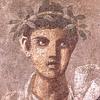Take a photo of a barcode or cover
I sure did not expect so many Scripture references in this book! There are some truly witty essays in here, particularly the one about the Golden Girls. Also a lot of references to being transgender and transmasculine. A good collection of essays. I love how Ortberg's mind works.
I genuinely think Daniel Lavery is an important voice of the Millennial generation. I've been following his work since The Toast (RIP) and he is good at being funny, interesting, sincere, and unsettling. This newest book doesn't feature his weird, spooky side much if at all. It is, instead, an extremely interesting and well-thought-out exploration of Lavery's transition and what it means to be trans-masculine, trans, a man, and a person.
In places, it feels a little much. It's tempting to use the word "pretentious" but that's not quite right, as I think Lavery means every word and is simply using the tools he has to say what he wants to say. Those tools include The Golden Girls, Steve Martin's The Jerk, the Bible, Greek myth, and the Bible some more. It mostly works.
Also, there is a very short chapter on his wife's disbelief in umbrellas that is almost unbearably romantic. So that's nice.
In places, it feels a little much. It's tempting to use the word "pretentious" but that's not quite right, as I think Lavery means every word and is simply using the tools he has to say what he wants to say. Those tools include The Golden Girls, Steve Martin's The Jerk, the Bible, Greek myth, and the Bible some more. It mostly works.
Also, there is a very short chapter on his wife's disbelief in umbrellas that is almost unbearably romantic. So that's nice.
This is a fascinating collection of essays by Daniel M. Lavery, centered around his experience transitioning as an older adult as well as grappling with religious themes based in his upbringing. It was certainly a fresh perspective on the ‘trans memoir’ genre, as it isn’t exactly a memoir in the traditional sense. Lavery decided to forego specific details in favor of capturing his emotional thoughts more precisely; it worked great for this type of project. I wasn’t previously familiar with Lavery’s writing, though I’m sure I had seen some of his writing floating around.
The essays range from topics like Lord Byron (one of my favorite chapters, of course) to The Golden Girls or even to The Pilgrim’s Progress, by John Bunyan. I had never heard of the latter book until reading this one, but it was entirely fascinating. I am areligious, but it is hard not to identify some of the themes invoked by Bunyan in contemporary American society and thought. Lavery also takes these themes and retrofits them to aspects of gender transition, which was clever and liable to piss off traditional religious types. Kudos for that.
This is perhaps a great example of the opposite of my most common criticism with memoirs—that they lack emotional depth or reflection. Here, it is entirely full of reflection and emotional insights from Lavery. Some of the essays worked better for me than others, partially because I wasn’t familiar with all of the aspects of pop culture he cites, but also because some of his style can be outlandish at times. I wouldn’t confidently say I am a fan of his style, but it was enjoyable enough for a quick read. All in all, I quite liked how it feels like him discussing his thoughts and ideas about certain topics in a casual manner, as with a friend.
Clearly, religion played a foundational role in Lavery’s life, and as a lens for examining his own experiences and formation of identity, it works extremely well. I would recommend reading this one if you are at all curious on his thoughts—not only about his life and his own identity journey, but about these miscellaneous topics that float around in his head.
The essays range from topics like Lord Byron (one of my favorite chapters, of course) to The Golden Girls or even to The Pilgrim’s Progress, by John Bunyan. I had never heard of the latter book until reading this one, but it was entirely fascinating. I am areligious, but it is hard not to identify some of the themes invoked by Bunyan in contemporary American society and thought. Lavery also takes these themes and retrofits them to aspects of gender transition, which was clever and liable to piss off traditional religious types. Kudos for that.
This is perhaps a great example of the opposite of my most common criticism with memoirs—that they lack emotional depth or reflection. Here, it is entirely full of reflection and emotional insights from Lavery. Some of the essays worked better for me than others, partially because I wasn’t familiar with all of the aspects of pop culture he cites, but also because some of his style can be outlandish at times. I wouldn’t confidently say I am a fan of his style, but it was enjoyable enough for a quick read. All in all, I quite liked how it feels like him discussing his thoughts and ideas about certain topics in a casual manner, as with a friend.
Clearly, religion played a foundational role in Lavery’s life, and as a lens for examining his own experiences and formation of identity, it works extremely well. I would recommend reading this one if you are at all curious on his thoughts—not only about his life and his own identity journey, but about these miscellaneous topics that float around in his head.
I read a review that led me to believe this would be funny. And it wasn't, but that's not why I gave it two stars. It felt rambling and academic and not. It just wasn't for me.
I think about how much I miss The Toast (RIP) pretty frequently and grew up evangelical, so I'm a lot of Daniel's target audience, and still was too unfamiliar with about half of the references here to really get some of the essays. That said, when something hit me in the emotions, it really hit. The "When I have abs" essay made me laugh out loud. Jacob wrestling the angel as an exploration of naming blew me away.
I truly get that Daniel was trying to avoid the Trans Tragedy Memoir TM or the Raised Religions Tragedy Memoir TM, but I did like the times he wrote personally or got more vulnerable. I loved how he wrote about his relationship with Grace throughout the book, from just the simple humor and bewilderment about her refusal to use an umbrella, to her confidence and support helped him with some of his first public moments as a trans man. It was clear from the little snippets, sentences here and there, that their relationship, and its evolution over the years, has been such a source of strength for him, and I loved finding these, amid the dense layered jokes about mythology or Pilgrims Progress.
I truly get that Daniel was trying to avoid the Trans Tragedy Memoir TM or the Raised Religions Tragedy Memoir TM, but I did like the times he wrote personally or got more vulnerable. I loved how he wrote about his relationship with Grace throughout the book, from just the simple humor and bewilderment about her refusal to use an umbrella, to her confidence and support helped him with some of his first public moments as a trans man. It was clear from the little snippets, sentences here and there, that their relationship, and its evolution over the years, has been such a source of strength for him, and I loved finding these, amid the dense layered jokes about mythology or Pilgrims Progress.
Reads like unconnected essays and could have really benefited from an editor. Most of it felt like an inside joke I wasn’t a part of. I had no sense of how the author felt while writing this, the chapters felt like they were written at wildly different times.
Insta: @bookduorecs
Insta: @bookduorecs
emotional
hopeful
inspiring
reflective
medium-paced
Meu primeiro contato com esse livro, antes mesmo de saber que era um livro, foi uma citação que eu vi no Tumblr anos atrás (e só por ter sido no Tumblr, já dá pra saber que tem tempo mesmo).
A citação era a seguinte:
A citação era a seguinte:
"As my friend Julian puts it, only half winningly: "God blessed me by making me transsexual for the same reason God made wheat but not bread and fruit but not wine, so that humanity might share in the act of creation."
E lendo isso eu me senti tocado de um jeito muito especial e que eu não entendia muito bem, até entender (num processo muito mais longo que essa frase dá a entender). E eu guardei ela comigo até me lembrar de novo ano passado e procurar de onde ela era, e encontrar esse livro que eu acabei de terminar. É uma mistura de textos religiosos que estão intrinsecamente ligados à vida do autor com memórias e processos da sua transição, e tantas outras coisas, numa série de textos quase nunca sequenciais mas que criam uma narrativa incrível de se ler.
Foi um livro que me cativou, me ajudou, me acolheu e me entendeu. Me fez rir, me emocionar e me ver ali na história. Eu digo com certeza que essa é a primeira leitura de muitas que ainda virão.
I am simply not learned enough to understand all of these essays, which is fine. Every time Daniel brought up trans issues I was utterly absorbed.
This book is quite a lot in a relatively small package. It is a series of disconnected/connected pieces that range from personal essays, poems, classic movies, religion, and classical literature that all relate to Lavery’s journey as a trans person. I have seen other reviews say that the literature references were beyond them, and this was true for me as well. I did think the writing communicated emotions perfectly. This overwhelmed me at times and I had to take breaks, but it was really a good achievement. I recommend this book if you are prepared for a wild ride
I feel bad because I LOVE Daniel. I just don’t think his writing style in this book is for me. It felt uneven and all over the place, going between a narrative about transitioning (which I was super interested in!) and seemingly random stories in between that I couldn’t make heads or tails of, whether I’d read the source material or not. Again I love Daniel and I think this book is for a particular subset of readers who enjoy this style.





